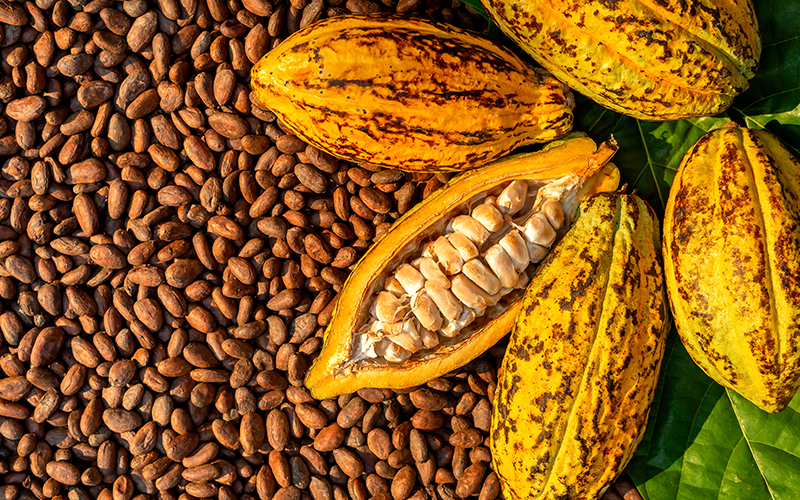The impact of Official Development Assistance on the AgriFood sector

We hear a lot about Official Development Assistance (ODA), but what is it? And what role does, and can, AgriFood play in development and meeting the Sustainable Development Goals (SDGs)? This article looks at ODA and its interactions with AgriFood innovation, drawing on content from one of our Virtual mission sessions.
The GCRF AgriFood Africa Virtual Missions are all about building a community of stakeholders from African countries and the UK, to work on innovative and sustainable ways to manage food production systems in Africa.
The following four speakers shared their knowledge and told us about inventive projects that are addressing ODA in Africa. Here’s an overview of their talks. You can watch the full talks here.
Speakers
- Kathryn Miller, Innovation Lead, Innovate UK
- Tristan Eagling, Science, Technology & Innovation Adviser, East Africa Research and Evidence Division, Foreign, Commonwealth & Development Office (FCDO)
- Ed Morrisson, AGS Ekology Ltd
The UK and ODA funding
Simply put, ODA is officially administered funding targeted at the economic development and welfare of developing countries. To be eligible for ODA, a project or programme must demonstrate how it will promote the economic development and welfare of people in developing countries. In a proposal, the applicant must show how the project will build a pathway for future development impact, and any benefits to the UK must be secondary in nature.
Why AgriFood?
A recent focus on Agriculture as a vehicle for economic development beyond farming systems has driven renewed interest in pursuing AgriFood investment. AgriFood systems have links with many of the Sustainable Development Goals (SDGs), and have direct relevance to SDGs 1,2, 3, 8, 12, 13, 14 and 15. Within Africa, agriculture is a key opportunity for economic growth and a source of jobs, both in primary production and further down the supply chain. Increasingly, there is a growth of skilled jobs within food systems in Africa, from food scientists in product development to drone pilots in the digitalisation of farming. With the rise in global chronic hunger since 2015 and the negative impact of COVID19, focusing on AgriFood systems innovation is even more critical now.
Both the GCRF AgriFood Africa Innovation Awards and the AgriTech Catalyst are examples of ODA funding calls focused on AgriFood Innovation in Africa. During our Virtual Missions, we heard from multiple projects about their impact in this area.
A good example of this was Ed Morrison who works within a UK-Kenya consortium addressing AgriFood challenges in Kenya. Two Innovate UK funded projects that he has worked on sought to improve fine and runner bean plant resilience to combined heat and drought stress. Runner and fine beans are often grown by smallholders operating as outgrowers for commercial farmers in Kenya, and improving marketable yields for these beneficiaries is a clear ODA objective. Demonstrating potential development impacts within a project is not straightforward, however, the consortium was able to successfully do this in their application. One way in which this was achieved was through demonstrating the multiple impact areas of the project upon the rural poor, consortium members and the wider agricultural value chains and food system. A key success factor of this project was meaningful engagement with the intended beneficiaries. This was done through discussions and site visits prior to project inception, as well as by setting up a dedicated site that acted as a demonstration garden and ‘living classroom’ showcasing technologies for the growers.
Clearly, ODA funded projects can deliver on their objectives while also driving innovation in AgriFood systems. With increasing pressures on global food systems, ODA funding is likely to remain focused on AgriFood for the foreseeable future.
ODA is one of the topics we addressed during our Virtual Missions. We also covered gender equality and finance and insurance. If you’d like to keep up to date with information about the GCRF AgriFood Africa project, click here.
Additional reading
Smallholder farmers in Africa still face challenges when it comes to finance and insurance
Tackling gender equality improves success rate for AgriFood projects

